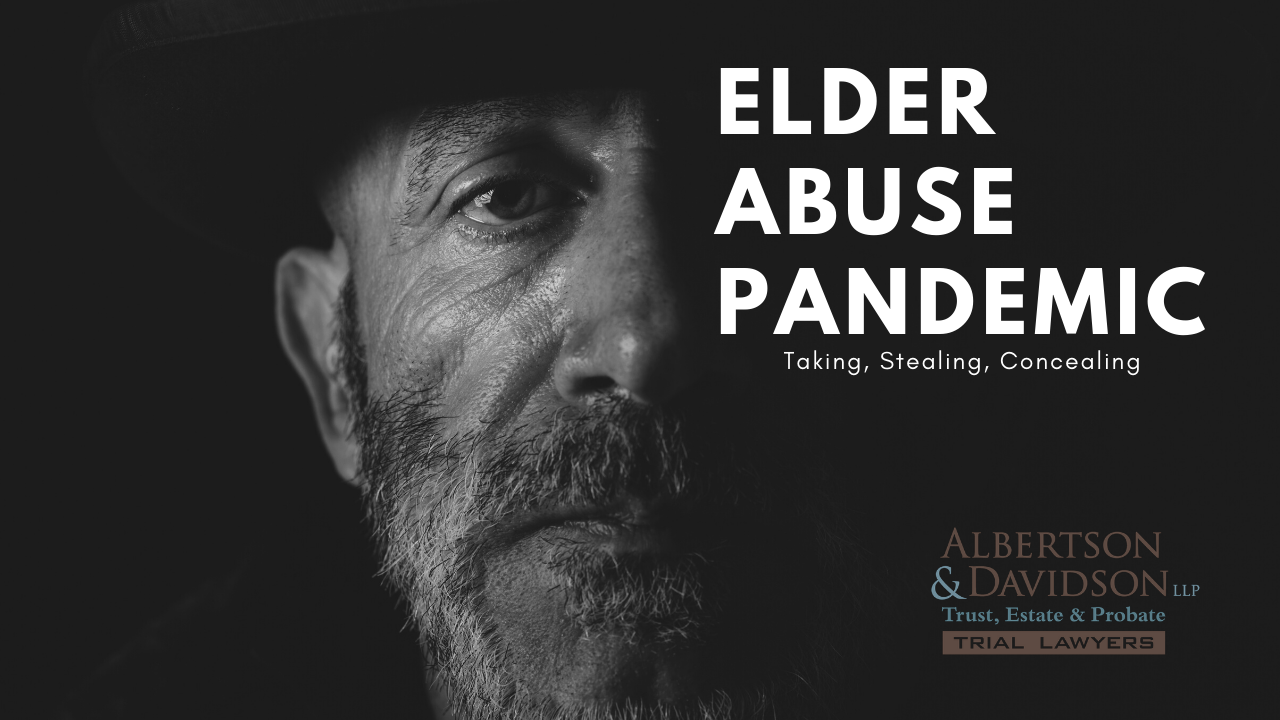
When a bad actor intervenes in your parent’s life to orchestrate a change in their estate plans—a change your parents didn’t want—we call that inheritance theft. It is the fastest growing area of theft among elders. And it often happens when you least expect it. It can be hard to detect and even harder to fight against. The team of elder abuse lawyers at Albertson & Davidson know how to stand, fight, and win for your parent’s legacy.
Identifying the Methods Used in Inheritance Theft
Simply put, inheritance theft occurs when property is taken from an elder using an estate planning device. Trusts, Wills, joint account designations, and beneficiary deeds are some of the ways in which property can be stolen after an elder dies. Of course, these devices can also be used to legitimately transfer assets after an elder dies too. And this is where the problem lies.
The Importance of Intent in Estate Planning Disputes
Inheritance theft isn’t as obvious as regular theft. If someone rushes into a bank with a gun and demands money, that’s clearly theft. If an elder changes their Trust to leave their estate to a neighbor instead of their children, is that theft? Maybe, but then again maybe not. We could imagine scenarios where a good friend or neighbor might be more deserving to receive an inheritance over a child. What if a child was a drug abuser and hadn’t talked to his parents in over a decade, whereas the good friend and neighbor took care of the elder and helped out on a daily basis? Perhaps the neighbor in this case is more likely the intended beneficiary of the elder rather than the child.
More often, the opposite is true. The children are more likely the intended beneficiaries of their parents’ inheritance rather than a friend or neighbor. But how do you tell when you have one situation over another? It all comes down to the facts and circumstances of each case. Every case is different. It’s not an obvious answer.
Protecting Your Loved Ones from Inheritance Theft
What the law wants to do is follow the elder’s intent. What did the elder intend to do? Did mom or dad really want to disinherit a child, or all the children? Or does that result reflect someone else’s intent? At its core, our Trust and Will laws are designed to help ensure that a person’s intent is followed. But that intent can be undermined when a person ages due to mental decline.
Things like dementia/Alzheimer’s disease can cause an elder to become more susceptible to undue influence. The same is true with strokes or other illnesses, such as cancer. These diseases exact a mental toll on elders. Further, just the fact of aging can cause a person to become more susceptible to undue influence because as we age we tend to become more dependent on those around us for help.
All of these factors combine to create a situation where predatory people can do bad things. If you are the victim of a bad actor who wrongly takes your parents’ estate, then you really need to take action in court. There are no governmental agencies out there that will help you during these difficult times. The bad actor is not going to be arrested, or even face criminal charges. But you do have rights and those rights can be pursued in a court action. Contact the elder abuse lawyers at Albertson & Davidson to let us fight for your rights.
